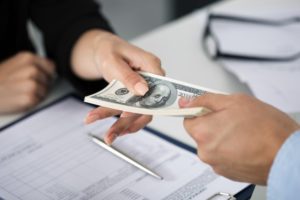Why Aren’t People Spending Their Tax Refunds?
Economists, politicians and people in general like to discuss the nation’s economy and where it stands at any given moment. There are many different points that are touched on and several aspects that are used as evidence to make important points. However, one indicator of the economy’s health that can never really be argued is consumer spending.
When spending is up the economy improves, as does the nation’s overall outlook. However, when spending is down, the economy slows and the outlook gets darker. To that end, what does it say about the economy that a lot of people are putting their 2015 tax refunds in the bank, instead of splurging on frills? It means consumers are still exercising caution and taking a wait-and-see approach.
According to the numbers, even though the average tax refund has been up 0.7 percent in 2015, about half of all taxpayers said they planned to save at least some of their refund money this year. That means they are going to be spending less. In fact, that percentage is as high as it’s been since the National Retail Association started conducting its survey 12 years ago.
Many other consumers, almost 40 percent, also said they are planning to pay off some debt when they get their refund check this year. In a separate survey by BankRate.com only 3 percent said they planned to spend all of their refund and 67 percent said they were going to use it to pay off debt.
So, while the news is good that taxpayers are getting a little more back this year, the news for the economy might not be as promising At any rate, with more money being returned to consumers, at some point it should make it back in to the economy. That means even though the boost might not come now, it could still come later.
“E” Reorganization
“E” Reorganization The “E” reorganization is defined as a re-capitalization – the exchanges of stock and securities for new stock and/or securities by the corporation’s shareholders. It involves only one corporation and the re-configuration of its capital structure. Stock for stock Differences in the voting rights, dividend rates, and preference on liquidation are ignored. Bonds…
Job Openings
Job Openings CAREERS Our team is committed to building a one-on-one relationship with our clients, providing the attention, commitment and expertise they deserve. We contact all of our clients on a regular basis to ensure that their expectaions are met and exceeded. We are looking for attentive employees with high values and a desire to…
Internships
Accounting Intern Greenstein, Rogoff, Olsen & Co., LLP (GROCO), is a full service Certified Public Accounting firm with offices in Fremont (near BART) and Palo Alto (in the heart of Silicon Valley). We currently are seeking a Tax Intern. For over 50 years, GROCO has consistently ranked as one of the top accounting firms in…
Lending Money to Your Corporation
Lending Money to Your Corporation By Alan L. Olsen, CPA, MBA (tax) Managing Partner Greenstein, Rogoff, Olsen & Co. LLP Starting a business takes a substantial amount of money and effort. There is a correct process to go through if you want to lend money to a corporation. First, you must properly document the transaction.…



